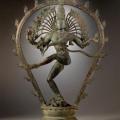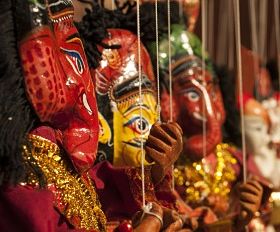56. Who’s Pulling Your Strings? Buddhaghosa
Buddhaghosa, a major figure in the history of Buddhism in Sri Lanka, argues against the need for a self to control and coordinate mental activities.
Themes:
• B. Ñāṇamoli (trans.), The Path of Purification: Visuddhimagga by Bhadantācariya Buddhaghosa (Kandy: 1991).
• B. Ñāṇamoli (trans.), The Dispeller of Delusion (Sammohavinodanī) (Oxford: 1996), 2 vols.
• J. Ganeri, Attention, Not Self (Oxford: forthcoming 2018).
• P. Harvey, The Selfless Mind: Personality, Consciousness and Nirvāṇa in Early Buddhism (London: 1995).
• M. Heim, The Forerunner of All Things: Buddhaghosa on Mind, Intention, and Agency (New York: 2014).
• Y. Karunadasa, The Theravāda Abhidhamma: Its Inquiry into the Nature of Conditioned Reality (Hong Kong: 2010).
• T. Kuan, “Rethinking Non-Self: A New Perspective from the Ekottarika-āgama,” Buddhist Studies Review 26 (2009), 155-75.
• R. Repetti (ed.), Buddhist Perspectives on Free Will: Agentless Agency (London: 2017).







Comments
Avicenna vs Buddhaghosa
Hi Peter,
I can imagine Avicenna would have not agreed with Buddhaghosa regarding the agent of activity, but what about the different stages of mind and attention? Would he agree with that?
In reply to Avicenna vs Buddhaghosa by Xaratustrah
Avicenna and Buddhaghosa
Actually I was thinking that the debate discussed in the last Dignāga episode was very reminiscent of Avicenna and his theory of permanent self-awareness. I guess his whole philosophy of mind is fundamentally at odds with Buddhaghosa's: he has a multi-faculty cognitive theory of course but it is crucial to him that there is indeed a single unifying self to hold it all together and control it. But if you are talking about the self-awareness stuff then as I say yes, that does sound like Avicenna.
Add new comment